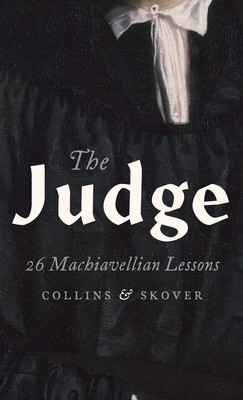
- We will send in 10–14 business days.
- Author: Ronald K L Collins
- Publisher: Oxford University Press, USA
- Pages: 296
- ISBN-10: 0190490144
- ISBN-13: 9780190490140
- Format: 17.5 x 24.4 x 3.3 cm, kieti viršeliai
- Language: English
- SAVE -10% with code: EXTRA
Reviews
Description
There is no book of political strategy more canonical than Niccolò Machiavelli's The Prince, but few ethicists would advise policymakers to treat it as a bible. The lofty ideals of the law, especially, seem distant from the values that the word "Machiavellian" connotes, and judges are supposed to work above the realm of politics. In The Judge, however, Ronald Collins and David Skover argue that Machiavelli can indeed speak to judges, and model their book after The Prince. As it turns out, the number of people who think that judges in the U.S. are apolitical has been shrinking for decades. Both liberals and conservatives routinely criticize their ideological opponents on the bench for acting politically. Some authorities even posit the impossibility of apolitical judges, and indeed, in many states, judicial elections are partisan. Others advocate appointing judges who are committed to being dispassionate referees adhering to the letter of the law. However, most legal experts,
regardless of their leanings, seem to agree that despite widespread popular support for the ideal of the apolitical judge, this ideal is mere fantasy.
from Machiavelli, The Judge describes what judges actually do, not what they ought to do.
EXTRA 10 % discount with code: EXTRA
The promotion ends in 22d.21:51:05
The discount code is valid when purchasing from 10 €. Discounts do not stack.
- Author: Ronald K L Collins
- Publisher: Oxford University Press, USA
- Pages: 296
- ISBN-10: 0190490144
- ISBN-13: 9780190490140
- Format: 17.5 x 24.4 x 3.3 cm, kieti viršeliai
- Language: English English
There is no book of political strategy more canonical than Niccolò Machiavelli's The Prince, but few ethicists would advise policymakers to treat it as a bible. The lofty ideals of the law, especially, seem distant from the values that the word "Machiavellian" connotes, and judges are supposed to work above the realm of politics. In The Judge, however, Ronald Collins and David Skover argue that Machiavelli can indeed speak to judges, and model their book after The Prince. As it turns out, the number of people who think that judges in the U.S. are apolitical has been shrinking for decades. Both liberals and conservatives routinely criticize their ideological opponents on the bench for acting politically. Some authorities even posit the impossibility of apolitical judges, and indeed, in many states, judicial elections are partisan. Others advocate appointing judges who are committed to being dispassionate referees adhering to the letter of the law. However, most legal experts,
regardless of their leanings, seem to agree that despite widespread popular support for the ideal of the apolitical judge, this ideal is mere fantasy.
from Machiavelli, The Judge describes what judges actually do, not what they ought to do.


Reviews